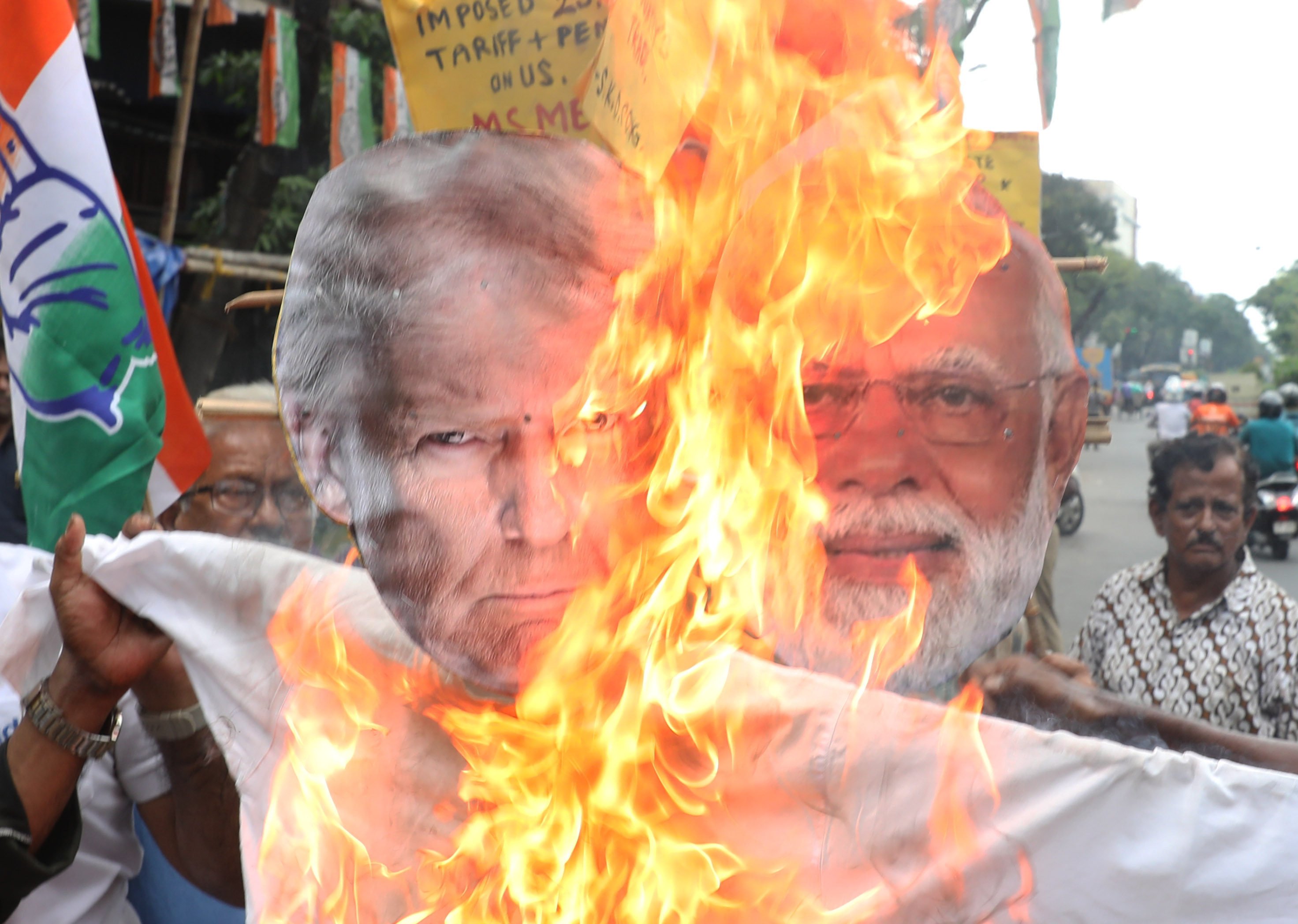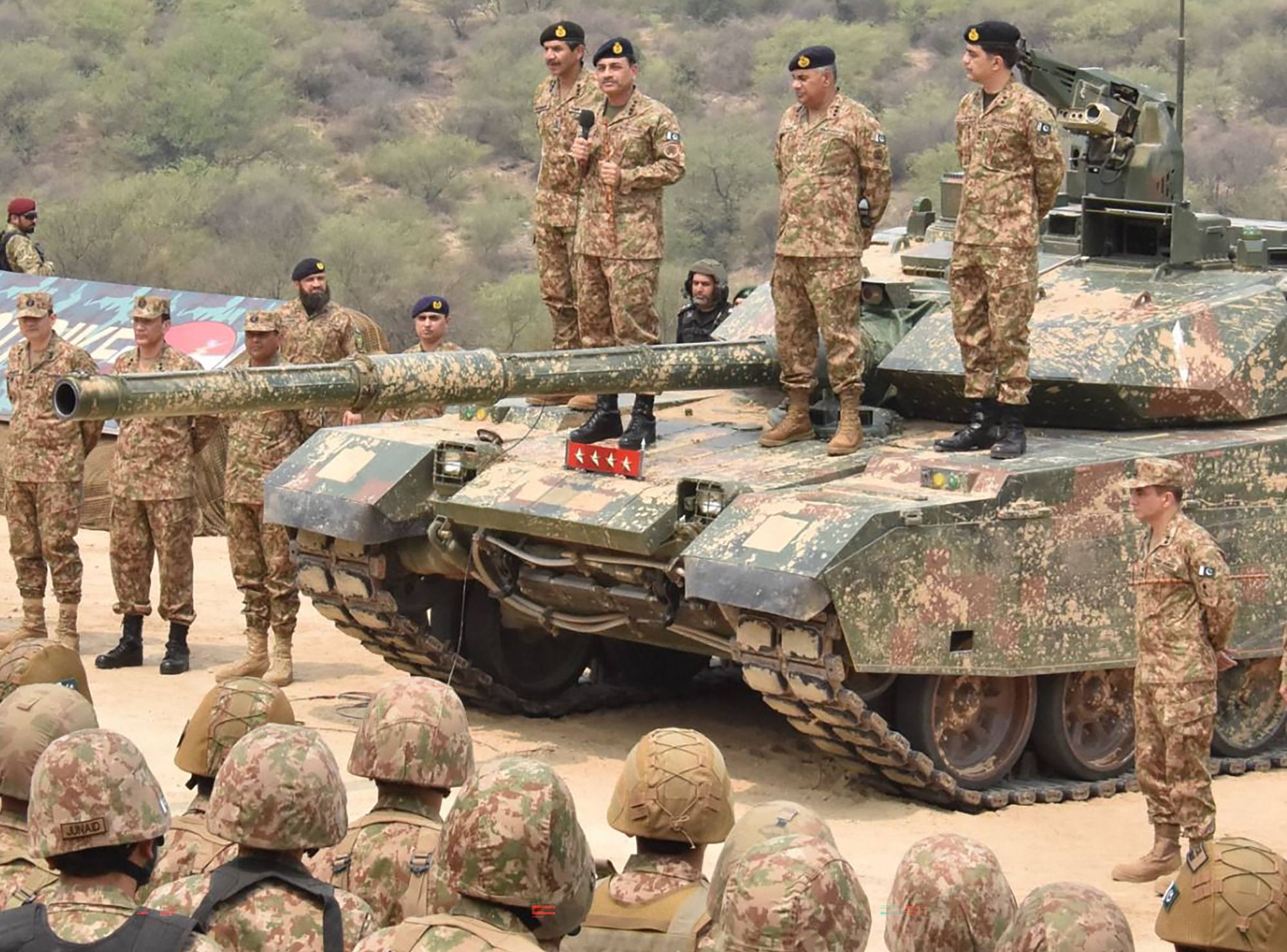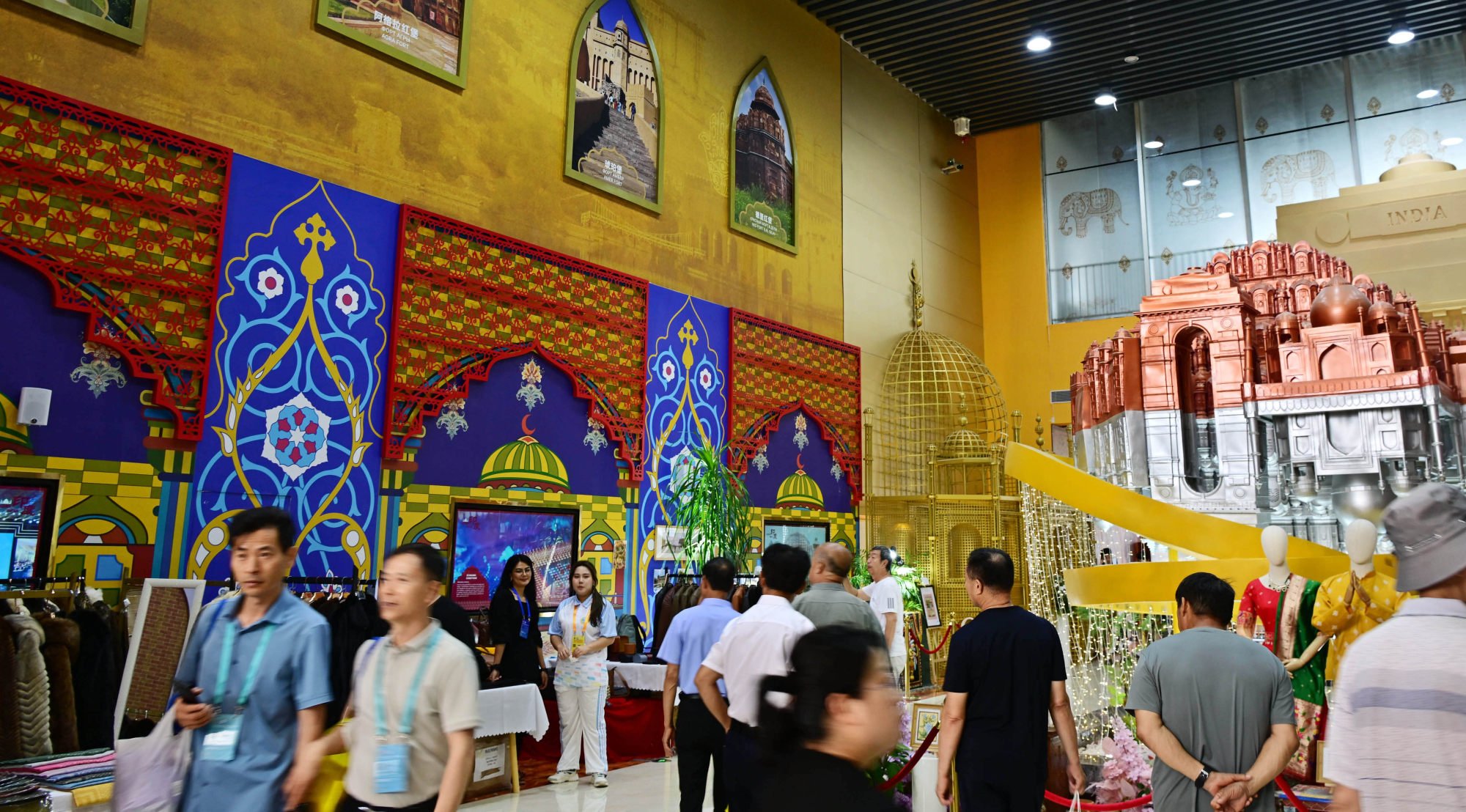‘No permanent friends’: Trump’s Pakistan pivot leaves India in the lurch
The US president announced a ‘massive’ oil exploration deal with Pakistan soon after imposing a 25 per cent tariff on Indian goods

An unexpected resurgence in ties between the United States and Pakistan amid Washington’s simmering tensions with India has turned the tables in the dynamics between the three nations, according to observers.
US President Donald Trump last week imposed a 25 per cent tariff on goods imported from India, on top of a “penalty” import tax, citing New Delhi’s trade barriers and continued purchases of Russian oil and weapons.
Hours after the announcement, the American leader revealed a “massive” oil exploration deal with Pakistan, saying that some day, India might have to buy oil from Islamabad.
Michael Kugelman, director of the Wilson Centre’s South Asia Institute, said the tables had turned in the US-Pakistan-India triangle.
US relations with Pakistan had experienced “unexpected resurgence”, Kugelman told This Week in Asia, adding that the sudden change signalled a serious challenge for New Delhi, given Washington and India had seen a deepening strategic partnership over the last two decades.
“There have been moments of crises, bumps on the road, but they have largely been surmountable, but in this case you are looking at a long period of a time, there have been repeated cases of US statements messaging actions that have concerned India a lot,” Kugelman said.
Trump has claimed credit for the India-Pakistan ceasefire mediation 29 times so far, according to local media reports, and has been consistently offering mediation on the decades-old Kashmir dispute between the two countries.
While Pakistan has appreciated Trump’s role in the ceasefire and supported his involvement in the Kashmir issue, India has refused to allow third-party intervention and asserted that the US played no role in the ceasefire agreement with Pakistan.

The bonhomie between Washington and Islamabad gained visibility in mid-June, when Pakistan’s powerful Army Chief Field Marshal Asim Munir was invited to a private lunch at the White House.
Pakistani military leader later nominated Trump for the 2026 Nobel Peace Prize for “preventing a nuclear war between India and Pakistan.”
Despite current problems, there was still a lot of common ground in the India-US relationship, Kugelam said.
“The two countries have ongoing cooperation in the tech, energy, and higher education. India has strong business-to-business ties, there is optimism and enthusiasm among American and Indian private industry leaders, so we should not necessarily overstate the nature of these changes in the relationship. We could see some degree of revision to the norm in due course.”
Jon Danilowicz, a retired American diplomat, said the reason Pakistan-US relations appeared to be on the upswing was that Islamabad better understood and could respond to the Trump administration’s approach to foreign policy.
Unhandled type: inline-plus-widget {“type”:”inline-plus-widget”}
“The US administration has tended to focus on its immediate concerns, and Pakistan has been quick to respond to these. India seeks to convince the US to take a longer-term view and make decisions accordingly,” said Danilowicz, adding thus far, the Trump administration did not seem inclined to adopt this approach – whether on India or its long-term allies in Europe and Asia.
“For the present, it seems that New Delhi is holding the short end of the stick,” Danilowicz said.
Trump, in a sharp attack on India and Russia on his social media account, also said the two countries could take their “dead economies down together” for their close ties.
‘No permanent friends’
Anil Trigunayat, a former Indian diplomat, said there was no comparison between India and Pakistan, and the US understood that.
“India, like any other country, follows its strategic interests and has diverse partnerships autonomously, and there is going to be no change,” Trigunayat said.

Sooner or later, US-India tensions should subside as there were larger strategic challenges for America in the region, he added.
“The fundamental tenet of international relations is that there are no permanent friends or enemies but permanent interests. These are all transactional in the end, but occasionally with a strategic design where individual country matters.”
Michael Rubin, a former Pentagon official, said the tilt to Pakistan was typical of Trump in that the US president seemed fond of moves with “no clear rhyme or reason”.
“After all, Pakistan is a terror sponsor and a Chinese satrapy. Its trade with the United States is just over 5 per cent of US-India trade,” Rubin said. “Trump may be the only glue that holds together US-Pakistan relations since the two countries no longer have anything in common.”
The differences between Washington and New Delhi were also caused by India being a part of Brics – a group Trump believes is working against the US dollar.
India is also a part of the anti-China Quad, while also being a member of the China-dominated Shanghai Cooperation Organisation (SCO).
Kugelman said India had been successful in balancing its ties with rival camps, but Washington was pushing India against maintaining cordial ties with entities that the Trump administration found concerning.
“India has been very effective in its strategic autonomy. After Russia’s invasion of Ukraine, New Delhi’s ties with the Kremlin remain strong. Similarly, in the Middle East conflict, its relationship with Israel and other Arab states has remained robust,” Kugelman said.
“New Delhi has no intention of breaking its long-standing policy of strategic autonomy. So, it will seek to work around [Trump’s objections]. It certainly is a significant strategic conundrum for New Delhi.”
Rubin said India had been extremely successful in balancing its relations with different nations.
“Just as Turkey acts as a Trojan horse in Nato and Armenia is a Western ally in the Collective Security Treaty Organisation, India’s presence in Brics and SCO actually can be more helpful than antagonistic,” Rubin said.